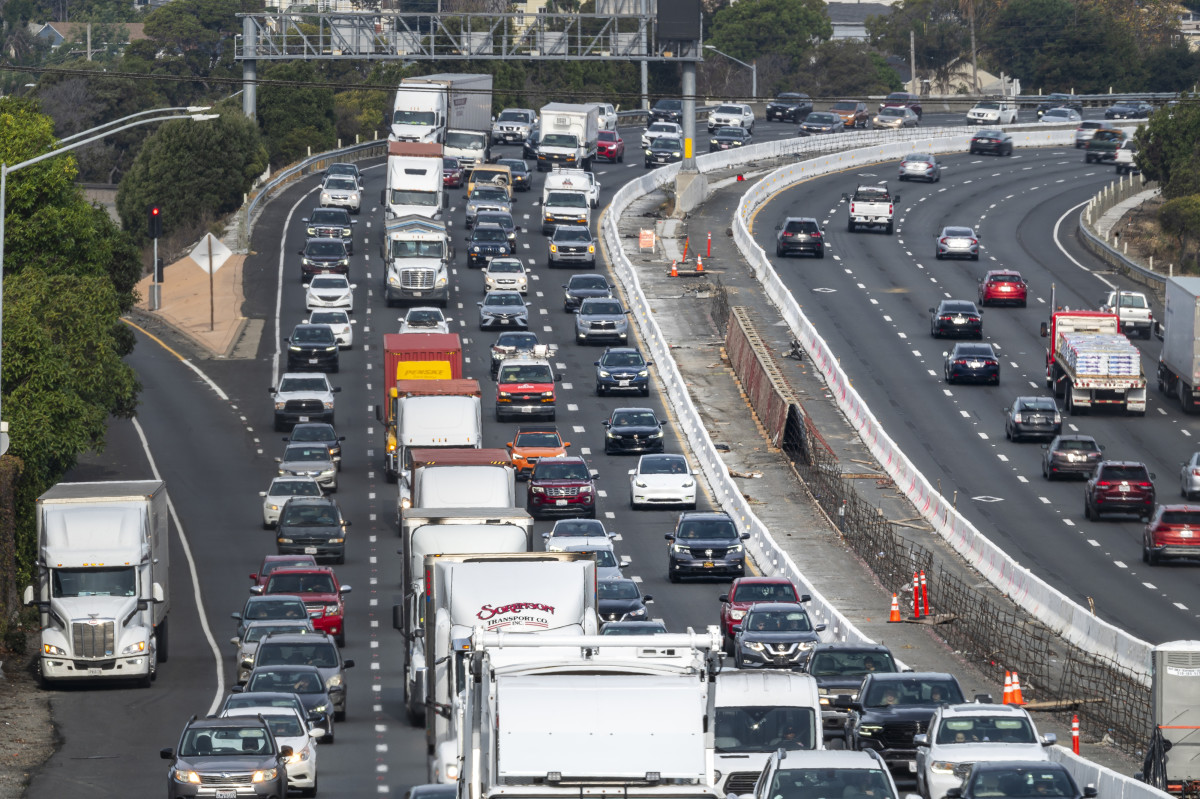
That's a big 10-4.
A Mountain View, Calif. company is taking the phrase "keep on truckin'" to the next level as it unveiled what it's calling the world’s first driverless-ready semi-truck designed for scaled deployment.
Related: Boeing CEO admits to mistakes in Max 9 blowout, vows transparency in probe
Kodiak Robotics, which debuted the vehicle at the 2024 Consumer Electronics Show (CES) in Las Vegas, said it planned to initiate the truck between Dallas and Houston later this year.
And the company said there will be no need of a safety driver to take over in case an emergency.
The driverless era is here.
— Kodiak (@KodiakRobotics) January 9, 2024
Introducing our state-of-the-art Gen6 truck, the world's first and only driverless-ready semi-truck designed for scaled deployment.#AutonomousTrucks #Technology #Innovation pic.twitter.com/OFdC7E7JcW
"The driverless era is here," the company proclaimed on X, formerly Twitter. "Introducing our state-of-the-art Gen6 truck, the world's first and only driverless-ready semi-truck designed for scaled deployment."
Kodiak Robotics said the truck is equipped with all the necessary redundant safety-critical hardware, including braking, steering and sensors, as well as the software required for driverless operations at scale.
"This truck fundamentally demonstrates that we’ve done the work necessary to safely handle driverless operations," Don Burnette, founder and CEO, said in a statement.
Growth of autonomous vehicles
The company said its sixth-generation truck further boosts the overall reliability of the technology by building on five years of real-world testing that includes 5,000 loads carried over more than 2.5 million miles.
The Kodiak Driver, Kodiak’s self-driving system, including its redundant, driverless-ready hardware platform, is designed to be safer than a human driver. Kodiak said it plans to roll out its sixth-generation truck to multiple vehicle types.
The news comes at a critical time for autonomous vehicles.
A Jan. 5 report from McKinsey said that 2023 was a tipping point for the autonomous-vehicle industry.
“Although leading players were able to successfully run and scale first commercial operations and increase their funding, others saw significant setbacks, stopped or reduced their operations, or exited the market entirely,” the report said.
The survey of leaders in the autonomous vehicle industry found that L4 robo-taxis — which run completely autonomously under certain conditions and a human doesn’t have to be ready to intervene — are expected to become commercially available at a large scale by 2030.
Fully autonomous trucking is expected to reach viability between 2028 and 2031.
Now be advised that Kodiak isn’t the only autonomous truck outfit in the Lone Star State.
Aurora Innovation (AUR) -) said it plans to debut its autonomous trucks on a Dallas-to-Houston route by the end of this year.
The Pittsburgh-based company and Continental were also at CES and they announced on Jan. 5 that they had finalized the architecture and requirements of its Aurora Driver hardware, a Level 4 autonomous driving system that Continental plans to start producing in 2027.
Working on backup computer
Aurora said it is working with Continental to develop a specialized secondary computer that can take over operation of the vehicle if a failure occurs in the primary system. That’s expected to go into production in 2027.
Autonomous truck companies have also been operating other Southwest locations, including Torc Robotics, which has has been test-driving its autonomous truck prototypes on historic Route 66 in Albuquerque, New Mexico.
Torc said it's on track to use its autonomous trucks for deliveries with no safety driver by 2027, according to Axios.
The trucking industry has been suffering from a shortage of drivers and the American Trucking Association forecasts a 64,000-driver shortage in 2023 and a new record high of more than 82,000 in 2024.
To keep up with demand, the group said trucking needs more than one million new drivers over the next decade to replace those leaving the industry.
The association’s president CEO Chris Spear told the House Transportation and Infrastructure Committee in September that automated vehicle technology holds great promise to enhance highway safety, boost economic productivity, and support trucking’s essential workforce.
“What’s needed first is a national framework that encourages development, testing and deployment of technology, in direct support of interstate commerce,” Spear said.
“Federal guidance should treat commercial and passenger vehicles equally and require automated vehicles to achieve an acceptable level of safety and performance, rather than requiring the use of specific technologies," he added.
Spear added that “securing cargo and ensuring that the movement of hazardous materials, livestock and produce, particularly in extreme weather conditions, are factors that will undoubtedly require a driver, superseding the values of automation.”
Action Alerts PLUS offers expert portfolio guidance to help you make informed investing decisions. Sign up now.







